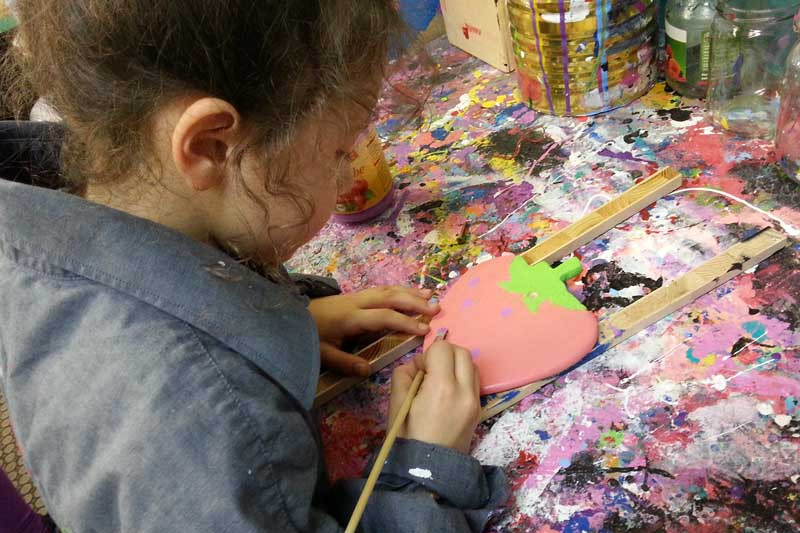Support in the School Transition Period – A Mannheim pilot project supports children and their parents during the transition from primary to middle school

At the end of the primary school years, most students in Germany face an important decision: the choice of which type of school to attend next. This decision often determines the type of degree they obtain and thus the further educational journey of the child. A pilot project in Mannheim supported by the Software AG Foundation offered support and consultation for selected families during this critical transitional phase.
Germany is - by international standards - a country with a particularly low level of educational equality. There are several types of schools and different degrees, and experts have long criticized that the type of degree that students obtain continues to be tightly coupled to the educational backgrounds of the parents. It varies from state to state whether it is the primary school or the parents who can decide what type of school a child continues on to next. In Baden-Württemberg, for example, the primary schools stopped issuing binding decisions in this regard in 2012.
Targeted Support
For the last 30 years, “ikubiz,” an intercultural educational center in Mannheim, has been serving individuals with a need for assistance in education. The ikubiz center, in cooperation with the Johannes-Kepler primary school, the city of Mannheim, and the state educational office, developed a pilot project to offer support to selected families in the critical phase of transition at the end of primary school.
The Johannes-Kepler primary school is located in the downtown Mannheim district of “Westliche Unterstadt.” The residents here are mainly low-income families, and around 90 percent of the students are from immigrant families. “Their parents know very little about the German school system,” explains Prof. Dr. Dirk Randoll, educational specialist and project manager at the Software AG Foundation. “Often they are overwhelmed by the question of school selection, and there are frequently language barriers. Such deficits are the most common reasons why their children are more likely to go to Hauptschule” - a less academically prestigious type of middle school.
Starting in the 2013/2014 school year, around 40 students from the 3rd and 4th grades were, together with their parents, systematically and individually offered additional consultation and support. Educator Corinna Störzinger, language specialist Necmiye Ceylan-Uzun, and social education worker Carlo Peduto-Brixner supported the families over a period of two and a half years. The alliance between the project staff, teachers, and parents was designed to encourage and support the children - and help them to make individually appropriate decisions regarding their further school career.
Laying Solid Foundations
“Students encounter many new things when they move to the next level of school,” emphasizes project leader Corinna Störzinger. “The new school environment is usually foreign to them, and they have to learn how to deal with new teaching structures and new expectations regarding learning and performance. It's important to prepare the children well in advance of this transition, so that they have a solid foundation for this sensitive stage of their school biography.” Individualized forms of support help to improve the reading and math skills of the students, while additional free time activities provide space for personality development. Parents were included, as well: the project team members made house calls and offered consultation, and accompanied the parents to parent-teacher conferences. “In many families, even small offers of assistance can make a big difference - but sometimes the schools and the teachers aren't even aware of the challenges that children face in their daily lives,” said Corinna Störzinger, reflecting on her experiences. Assessment forms could fill this gap and thereby help to avoid certain crises.
A Lasting Impact on Other Schools
“Our society urgently needs strong concepts to increase the educational opportunities of children and youth from migrant families,” said Prof. Dr. Dirk Randoll. “With its pilot project, the intercultural educational center in Mannheim has tackled a serious void: far too little is being done in Germany during the critical period of school transition.” By now, other primary schools have already been able to profit from the pilot project's experiences: “We have worked with assessment forms with all children, parents and teachers,” says Corinna Störzinger. “This allows them to decide on a joint path and put it in writing, to define challenges and successes, and to create tasks for themselves.” The student assessment forms and educator evaluation forms developed during the projects were provided to the Office of Education and the Mannheim Department of Education so that other primary schools can make use of them.
For more information (in German): ikubiz and Bildungsbericht 2016 der KMK und des BMBF.
